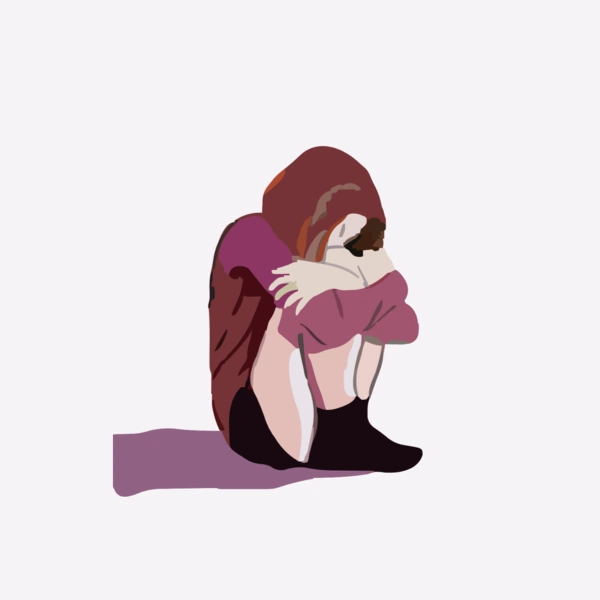
Ultimate Guide – How to Make a Successful Superannuation TPD Claim
You can make a TPD claim through your superannuation fund
In Australia, you can make a successful total and permanent disability insurance (TPD) claim when depression and other mental illnesses prevent you from working and earning an income. If you suffer from mental health issues like severe anxiety, PTSD or bipolar disorder, you could access the benefits contained within your superannuation policy on a 100% No Win, No Fee basis.
At Aussie Injury Lawyers, our 99% claim success rate has helped thousands of everyday Australians access insurance benefits to care for themselves and their loved ones at challenging times. It’s FREE to know how we can help you – Call Now 1300 873 252
In Australia, TPD insurers often seek to deny or minimise claims because their primary concern is their profitability, not your capacity to pay your bills. Sometimes, it can be more difficult to prove your psychological and psychiatric condition prevents you from working. However, if you have been seeking regular therapy from your psychologist, psychiatrist, or GP, you will have more evidence to prove your claim.
Thankfully, our legal team has considerable expertise in winning mental health TPD claims. Our 99% success rate backs this up. Give yourself your best chance of success and contact Aussie Injury Lawyers now for professional legal help. For immediate support Call 1300 873 252
The number one question we get at Aussie Injury Lawyers is: What is My Mental Health TPD Claim Worth? There is no simple answer because everyone’s circumstances differ.
However, based on our experience, the value of an average TPD payout will range from $50,000 to $500,000, with some people able to make multiple claims. (If you have several superannuation accounts, you can make more than one claim.)
Another factor is your lawyer’s level of negotiation skill and expertise. Insurance companies will seek to minimise your entitlements at every opportunity. Thankfully, our TPD claim lawyers deal with insurers every day. We understand the techniques they use to minimise your benefit. Hence, Aussie Injury Lawyers have the skill and expertise to support you through the process of maximising your payout.
For your free, accurate claim evaluation call 1300 873 252 or use our fast online calculator >
I have heard of No Win, No Fee, but what is 100% No Win, No Fee?
You will likely struggle financially if you can no longer work due to a mental health disorder. For this reason, Aussie Injury Lawyers will charge no upfront legal fees or ongoing legal costs during the progression of your claim.
This includes the cost of medical reports and assessments needed to build a compelling case to claim your TPD entitlements. You pay only when we win your claim and nothing if you lose. Hence, AIL carries all the financial risk of your legal case.
There is also no cost to understanding your legal options, including if you have multiple claims. It’s free to start, so call now – 1300 873 252
Yes, you can make a TPD claim for mental illness when:
To make a successful TPD claim, you must prove that your mental illness has caused a long-term or permanent disability, which will stop you from working in your usual role (or make it very difficult to do so).
However, unlike a workers’ compensation claim, you do not need to establish who was at fault or how you acquired your mental health condition.
Fortunately, our legal team has helped thousands of Aussies make successful claims, and we can help you, too.
Find out if you can claim for mental illness – It’s free!

Each insurance provider has different requirements for making a successful depression tpd claim, and you must know these before applying.
Generally, when your insurance policy includes TPD cover, you can make a TPD claim but it’s best to meet your criteria before lodging a case, like:
Furthermore, proving your eligibility for permanent disability benefits relies on compelling medical evidence of clinical depression and how your mental illness impacts your work capacity.
Typically, getting an insurer to approve depression TPD claims is more difficult. Our expert superannuation insurance lawyers will support you through the process. It’s free to get started.
Up to 20% of Australians who live through a traumatic event will develop PTSD. People typically develop Post Traumatic Stress Disorder in several ways, including:
If you believe you have PTSD (or some other psychiatric condition) and it’s stopping you from working in your regular job, you could make a TPD claim for PTSD. Your TPD payout is likely significant and will help you survive financially while seeking treatment for your mental disorder.
Many people afflicted with bipolar disorder struggle to maintain employment because of the unpredictable nature of the disease. While there are medications that help stabilise mood swings, many sufferers still experience severe episodes. While some employers will accommodate employees with a mental health issue, others require workers to be able to complete work-related tasks without interruption.
Bipolar disorder is often referred to as manic depression because of the extreme mood swings and severe anxiety that occur. While many people experience some form of mental illness, bipolar disorder is a common psychological or psychiatric condition.
If you cannot continue your current position due to your disorder, you could make a total permanent disability insurance claim. To do this you must show:
To qualify for mental illness TPD, you must have a psychiatric or psychological disorder that impairs your ability to work. Common mental health disorders include:
• Depression
• Bipolar disorder
• Anxiety disorder
• Post-traumatic stress (PTSD)
• Schizophrenia
• Obsessive-compulsive disorder
• Schizoaffective disorder
It can be more challenging to win claims for mental health issues, as insurers typically require extensive documentation of the disabling impacts of your condition. So, a skilled TPD lawyer must guide you through the claim process to win a TPD benefit.
If you have a mental health condition like severe anxiety, depression, PTSD, bipolar disorder, schizophrenia, borderline personality disorder, (and others), you may struggle to clearly think every day. So, it is unsurprising that some people are unaware they might qualify to claim their TPD benefits. For Australians who have more than one Superannuation policy with TPD insurance, it is possible to make multiple claims.
You may also be unaware that your mental health condition does not need to be linked to your occupation or be acquired (or escalated) by your work. If you have a psychiatric or psychological disorder that prevents you from working, you could still make a claim.
The primary consideration when claiming a TPD benefit is your level of working capacity due to your psychological or psychiatric condition. If you have an impairment that makes it impossible to work, this will most likely qualify as “permanent cessation” and entitle you to a TPD insurance claim.
Other types of permanent disability claims involve an evaluation of your whole person impairment, e.g., disability support pensions and WorkCover. However, to access Super TPD entitlements, the main concern is your capacity to work due to your mental health condition.
There is no doubting the stress of the TPD claim process. If a mental health or psychiatric illness already impacts you, this impact would be compounded, making your life seem unbearable. To make a successful mental illness permanent disability claim, you will need to:
This process can be very challenging, particularly regarding TPD claims for mental illness. Typically, insurers will seek to deny or minimise your entitlements.
Hence, your best chance of success is working with a legal team with substantial expertise in winning these claims, so contact us now.
At Aussie Injury Lawyers, it costs nothing to know where you stand. Get the expert legal help you need to have a successful TPD claim for mental illness by calling 1300 873 252
Our experienced TPD lawyers are in Brisbane, Sydney, Melbourne, and Perth.
AIL helps people claim their TPD benefits anywhere in Australia. People living in rural areas may not have access to a qualified psychologist or psychiatrist to be assessed as having a psychiatric disability. In this situation, a report from your local GP is sufficient. Our insurance lawyers will guide you through the assessment process for proving your eligibility.
If you suffer from mental health conditions, you might be concerned about the stress of lodging a claim for your TPD benefits. Insurers sometimes seek to deny or minimise your payout, especially in mental health cases. Let Aussie Injury Lawyers take on the anxiety of your case. Our 99% success rate is proof of our expertise in superannuation claims. We will do the heavy lifting so you can focus on your recovery.
It is common for people to think that Total and Permanent Disability relates to a physical injury. Because of this, people with mental illness believe they can’t qualify to claim their TPD benefits. While it is more difficult to prove, Aussie Injury Lawyers have assisted hundreds of Australians with a successful mental illness TPD claim. Knowing if you are eligible costs nothing, so contact us now.
Once we submit your mental illness TPD claim to your superannuation insurer, you will usually achieve a resolution within three months. If your insurance company challenges your claim or requests more information, your case will take longer. Because Aussie Injury Lawyers specialises in insurance claim law, we regularly deal with all the major disability insurance companies and understand their requirements. Our detailed knowledge of the insurance claims process leads to faster outcomes.
Your type of psychiatric disorder is not important for a successful mental illness disability claim. Suppose you have anxiety, depression, post-traumatic stress disorder, bipolar disorder, schizophrenia, or other recognised mental health conditions and can’t work in your usual occupation. In that case, you could make a super TPD claim. How you acquired your disorder is also not relevant. If your illness stops you from working permanently, you could access your TPD entitlements.
Yes, it can be more challenging to claim a TPD payout for psychological injury, however, understand that mental illness TPD claims are more common than those for physical injuries. Of course, your chance of a successful claim increases substantially when you work with the help of a skilled insurance claims lawyer. They will help you build a compelling case that meets the TPD definition of your insurance policy.
When you are living with a mental illness, you will struggle to navigate the process of claiming a total and permanent disability. It is particularly challenging to prove your level of disability while negotiating with an insurer trying to limit your claim. For this reason, many Aussies choose to work with TPD specialists, like the experienced legal team at AIL.
Hardworking and straight-talking, our experienced TPD lawyers are dedicated to delivering results for you. We understand how challenging life can be when things go wrong and are here to help with free legal advice.
The expert team at Aussie Injury Lawyers is led by Kerry Splatt, an Accredited Specialist in Personal Injuries law. His expertise and over 100 years of combined legal experience guarantees success. Reach out. Let us show how we can assist you and your loved ones when the unexpected happens.








You can make a TPD claim through your superannuation fund

Like many people, the first thing you want to do

If you have a PTSD disorder or other psychological injuries